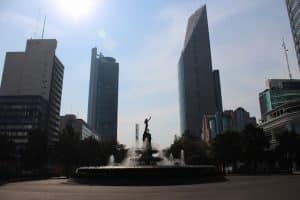La Directora General Adjunta Ellard subraya la necesidad de mantener el impulso de la OMC y la importancia de la reforma de la solución de diferencias

En su intervención del 6 de diciembre ante el American Enterprise Institute y la Brookings Institution, la Directora General Adjunta Angela Ellard destacó que proseguía la labor de la OMC pese al aplazamiento de la Duodécima Conferencia Ministerial (CM12).
(de momento sólo en inglés)
DDG Ellard stressed WTO members’ collective wish to maintain momentum despite the postponement. In particular, there are two key issues that still need to be addressed for which momentum must be maintained – the WTO’s response to the pandemic and fisheries subsidies, she said.
When asked about the relationship between multilateral and plurilateral initiatives, as well as regional trade agreements, DDG Ellard noted that they coexist and complement each other. «The future is not plurilateral or multilateral; it belongs to the agreements of variable geometries,» she said. At the same time, issues of the global commons, such as fisheries subsidies or developing a single instrument regulating carbon pricing, can effectively be addressed only on a multilateral basis.
DDG Ellard underlined that consensus is «the heart and soul» of the WTO, when she was asked about the structure and effectiveness of the WTO structure. The WTO is its 164 members, and any changes in the decision-making process has to emanate from them, she added. She further stressed that the organization is able to function only when there is trust among its members. In this regard, she underlined the need for more transparency and the role that the WTO’s monitoring function plays in enhancing transparency.
With regard to dispute settlement, DDG Ellard noted that «WTO rules, whether they are new or old, have only a limited usefulness if they can’t be enforced.» She added that, although the dispute settlement system is still operating and continues to be used, resolving the current stalemate is «existential» for many members. Stressing the member-driven nature of the WTO, DDG Ellard observed that it’s up to members to determine the next steps for the Appellate Body and what is needed to fix it.













